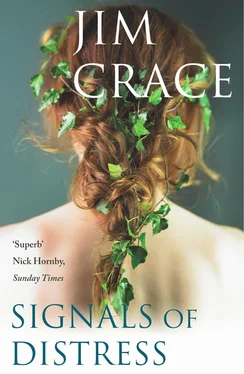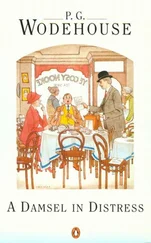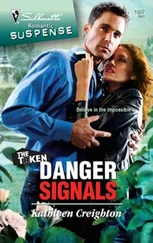They rang one bell to call the crew aboard. Three men were sent to load the passengers’ bags and boxes. Palmer Dolly, ‘unremarked amongst the crowd’, ran forward to lend a hand. He lifted Lotty Kyte’s heaviest box onto his shoulders and carried it on to the Belle . No one challenged him. And no one missed him for a while. He hadn’t said goodbye to anyone. He simply disappeared into the shadows — and the bloodstains — of the orlop deck. He’d have the salvaged cattle for company at first. And then he’d have their straw bedding to himself, until America. Soon the sound of falling lightlines and hoisting canvas filled the air. ‘And pull! Let-her-go.’ The sailors were a team again. The captain was Napoleon. The mooring ropes were loosened, the fenders lifted and the jib sail set to take the port tack out of Wherrytown for the emigrant ports of Fowey and Cork before the weeks in open sea. They rang the final bell, this time for paying passengers to come aboard.
Aymer would have liked to hug the Norrises, but he could only shake their hands. They walked away towards the Belle , and joined their two fellow voyagers, Lotty Kyte and Miggy, at the bottom of the ship’s gangway where Ralph Parkiss was waiting for his bride. Katie Norris went ahead, keen to get away. Robert Norris took Lotty’s arm and guided her onto the Belle . Her hands were shaking from the dread of it. Her eyes were hot and watering. ‘My brother can supply your furnishings when we arrive,’ she said, just to hear a voice.
Rosie Bowe had Miggy in her arms. She planted kisses on her neck and face. Her sobs were animal, a seal. She didn’t have the breath to speak. Her throat was aching from the tears and cries she had suppressed all morning, all week. Her eyes were raw. Ralph put his arms around them both and made promises: he and Miggy would find someone to write a letter if Rosie would find someone to read; they would send for her when they were rich; they would name their first daughter Rosie Parkiss; and, come what may, they would return one day before she died. But Rosie Bowe did not believe in that. She only knew that all the bone and sinew of her life was leaving on the Belle . ‘Be good to her,’ she said to Ralph. She gave her gifts to Miggy in a straw bag: some salted beef, the petticoat her sister had made, a baby shawl, one of the bars of soap that Aymer Smith had left, and the embroidered passage from the cottage wall, ‘Weep sore for him that goeth away …’
‘Oh, Ma, don’t fret,’ said Miggy. ‘I’ll end up crying too. And that’s bad luck. That in’t the way to go.’ She put her arm through Ralph’s and took her first step on the Belle . She didn’t look at Rosie Bowe. Her eye was caught by Aymer Smith approaching from the crowd. At last. She’d almost given up on him.
Aymer ran up to the gangway. He stood between Rosie and her daughter. He took his purse out of his coat. And handed three bright sovereigns to the girl. (‘What’s going on?’ said Alice Yapp out loud. ‘What has old spindleshanks been doing with the girl that’s worth that weight of tin? Now there’s a tale. I’ll find the bottom of it, don’t you worry.’) There wasn’t any time for Aymer to make a speech. Miggy took his money without a word of thanks, though Ralph shook his hand. The captain rang the final bell, to pull the gangway up. And that was that, and nothing much to celebrate.
The Belle had soon left the perils of the shore. It slowly dropped down-channel against the tide and waited on capricious winds to take it out beyond the harbour boom and between the channel buoys. It idled there, in the offing, for half an hour. The quayside crowd could pick out Lotty Kyte on deck, still blindfolded, and the Norrises. Then the light picked up, and with the light the sea, for light can energize the sea and make the waves more spirited. The wind did not diminish as they feared. It held — and more than held. The ship turned stern to Wherrytown and beat a passage through the bay up to the Finters, those final, storm-racked morsels of the land where there were only cormorants and kelp. Within the hour the Belle of Wilmington had dissolved into the fog-veiled precipices of cloud, and Rosie Bowe, heartbroken on the quay, had nothing left to do but set her face against the wind and walk the six miles home.
If she had waited for ten minutes more — as did Aymer Smith — she would have noticed the fog-cloud thicken where the Belle had disappeared and a yellow twist of smoke make smudges on the white. The coastal steampacket, Ha’porth of Tar , passed within fifty yards of the Belle . They rang their greetings across the water, and Lotty Kyte, reluctant to abandon the sea air and the deck, waved both hands into the darkness and had no fear. It seemed to Aymer that the tussling spirits of the age were passing on the sea; the old, the new, the wind, the steam, the modest and the brash. The future would be driven by steam, he was sure. It was a more compliant slave than wind. Already there were steam coaches, steam looms, steam threshers, and he had heard of a machine that could hatch eggs by steam. ‘There’ll be no need for men and chickens soon,’ he thought. ‘There’ll be no need for sails on boats either. A shame.’ And such a shame as well that there wasn’t anyone to share his observations with. The quay was empty now. Aymer went in search of educated company, George, perhaps, or even Mr Phipps.
The Tar , its progress simplified by steam, put into Wherrytown with no one there to watch — unless there was someone, lost behind the town, with nothing else to do but stare and wonder if the Belle ’s departure was a liberation or a curse.
Aymer Smith didn’t find educated company. He went back to his room. His own bed smelled of Whip. He lay down on the Norrises’ double bed, his boots still on, his face pressed into the mattress. He smelled where Katie Norris had been, and would have masturbated there and then had not Mrs Yapp come in on some thin pretext and plagued him with her nosiness.
‘In bed? Are you not well, Mr Smith?’
‘I am entirely well, despite a malady of spirit.’
‘What’s that then? Fever? I’ll bring you a pennyworth of something for it, if you want.’
‘I suffer from a sentimental malady, Mrs Yapp. A pennyworth of peace and quiet is all I want.’
Mrs Yapp was not the sort to take offence. ‘Don’t suffer for that Miggy Bowe,’ she said. ‘She’s gone and in’t worth the fever.’
‘I have not got a fever, Mrs Yapp. Nor do I suffer anything for Miggy Bowe …’
‘I think you have been singed by her, though. You can say.’
‘Good heavens, she’s a country girl! What dealings could I have had with her?’
‘Now there’s a question to be asked, and asked by anyone who saw you handing money to the girl.’
‘Phaa, Mrs Yapp!’
‘I’m only mentioning …’
‘Then please to mention nothing more. I have no head for it.’ He stood up and looked out on to the courtyard, with his back to her. ‘I have business dealings with the Bowes, the younger and the elder both, regarding the manufacture of our family soap. As you well know. Those coins that I gave were kindly recompense for their loss of kelping. My pocket has been singed by her and nothing else. I aim to give some coins to the mother, too. And so you see there is no gossip to be brewed from it.’
‘That is uncommon kindly, sir. For Rosie Bowe will want a little helping, what with her Miggy gone, the kelping finished with and bad luck all along the coast. You heard the Cradle Rock’s pushed down?’
‘The Rock pushed down! And how is that?’
‘That blackie done it, Mr Smith. Pushed it halfway down the cliff.’
Читать дальше












